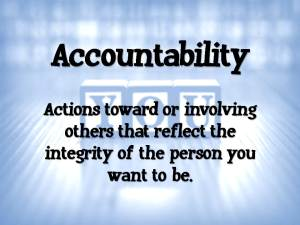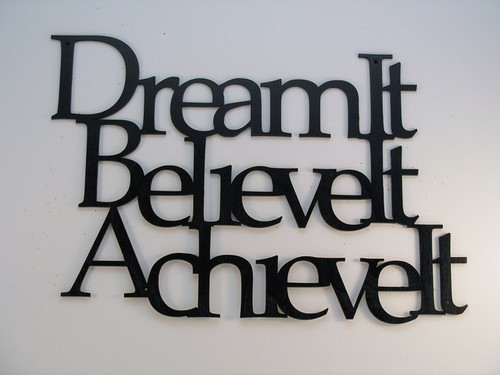 Last Thursday, I had the opportunity to attend the Warrior Expo here in Virginia Beach and went to listen to their keynote speaker, US Army Retired General Martin Dempsey. He shared some of his personal leadership lessons and insights from his 41 years of service to our nation, leading everything from a Cavalry Troop to an Armored Division, to serving as the Commander of US Central Command as well as Chief of staff of the Army and Chairman of the Joint Chiefs.
Last Thursday, I had the opportunity to attend the Warrior Expo here in Virginia Beach and went to listen to their keynote speaker, US Army Retired General Martin Dempsey. He shared some of his personal leadership lessons and insights from his 41 years of service to our nation, leading everything from a Cavalry Troop to an Armored Division, to serving as the Commander of US Central Command as well as Chief of staff of the Army and Chairman of the Joint Chiefs.
I really enjoyed General Dempsey’s topic of discussion because he spoke about my favorite topic… leadership. I’ve noticed in the last couple of public addresses from senior military and government officials they’ve been sharing more and more of their insights on leadership and what being a leader means. It’s encouraging to see and hear these insights continue to be shared with current and aspiring leaders.
What I especially liked about General Dempsey’s address was that he spoke about what makes leaders successful and that is their followers. But more importantly, why do people follow you? What makes a follower choose to follow you? What do you think the answer is? A follower not only respects their chosen leader and not because they have to but because they trust you. If you’ve ever heard me speak, you know I often share one of my favorite laws of leadership and that is the law of influence from John C. Maxwell’s 21 Irrefutable Laws of Leadership which states, “Leadership is influence – nothing more, nothing less” by John C. Maxwell. But before a follower even chooses to accept your influence, trust must be established. Trust is so important because it’s really the foundation of leadership. I once heard John C. Maxwell say,
“Trust is like change in a leader’s pocket. Each time you make good decisions, you earn more change. Each time you make poor decisions you pay out some of your change to people.”
Next, General Dempsey shared something I’ve seen in many organizations I’ve worked with and that is that your people want to feel they are a valued member of your team or organization. A leader does this. Dempsey stated, give your followers a sense of belonging. Let them know they are valued. It’s what all organizations are built for. He encouraged the leaders in the room that day and said, “If you do it well, do it better. If you don’t do it, do it well.”
General Dempsey instills trust by doing these 3 things.
 1.Listen
1.Listen
Dempsey stated he always wanted his subordinates to know that he valued them. He said the best way he could do that was to be very intentional about showing them that he was listening to them.
2. Amplify
Amplify your message – always remember to instill a high level of trust. People do what people see and leadership is influence. As leaders, it is your responsibility to deliver and amplify your message, what you value and your expectations. Dempsey stated to make your message the most resounding, but don’t pit those you lead against each other.
3. Include
Include your people – with instant access to technology and communication, it doesn’t replace a personal connection. A leader can make a big mistake by relying on digital communications. Dempsey emphasized that digital access can be strictly exclusive and not inclusive when communicating with your people.
During his Q & A, someone had asked about one of his greatest leadership lessons that he carried with him throughout his career. Without a blink, General Dempsey shared a story about the Nun who changed the way he led people. On one of his many deployments as Centcom Commander, he met a Nun who approached him one day and asked if she could come on base and have a service to serve and pray over his soldiers. He agreed to it and met her at the gate when she arrived. On this particular day, a bunch of rowdy soldiers were playing basketball and were hanging out by the court as they were walking by. She asked if she could start with that group. General Dempsey said he remembered hesitating and that he wanted to bring her to his “best” group of officers. She insisted and went over to the group of soldiers and introduced herself. As she spoke and prepared to pray for them, he watched as every one of his soldiers bowed their heads and joined in with her prayer. When she was done for the day, she returned to his office and he offered to have a driver return her to the convent. She agreed but insisted that he drive her back. He agreed and they left and he drove her back. When she got out of the car, he asked her why did she start with that group of soldiers, to which she answered, aren’t those soldiers your people? Aren’t they you’re responsibility? He couldn’t argue with her. She reminded him not to forget about all of his people, even the bad ones or ones you have forgotten about. This encouraged him to start engaging with those soldiers he had forgotten about and even brought his basketball shoes into and jumped in on a few games. The story continues, General Dempsey said, 10 years went by and he was at an event when a Sergeant Major came up to him and said “Hello Sir, do you remember me”? Wouldn’t you know it; it was one of those rowdy soldiers from the basketball court and who the General had decided to start engaging with. The point is it doesn’t take much. Sometimes a game of basketball can be the simplest way to engage and connect with your followers. You never know what that one simple act can turn into.
General Dempsey ended with his legacy statement and that he wants it to be a legacy of a warrior’s heart, an immigrant’s spirit and a servant’s soul.
I don’t know about you, but that was inspiring and encouraging to hear. As an executive coach and leadership expert, I am often asked, what’s the best way to engage and connect with my staff especially in this fast paced world that’s filled with deadlines? That’s an easy answer, you make time, no matter how uncomfortable it may be for you. Remember, it’s not about you. It’s about your people…your team. Just like General Dempsey’s example, sometimes you have to find the connection with your team which may mean you have to bring in your basketball shoes in and get in on the next game. You have to be intentional about it if you want to make change. If you value it as a leader, you’ll make the time and I guarantee you’ll reap the rewards of making this effort and contributing to your team’s personal and professional growth. Try it! I dare you!
If you’re looking for better ways to engage and connect with your staff or team, or even if your organization is trying to improve its culture, contact me.



